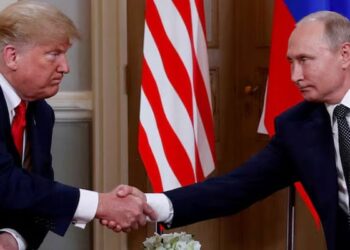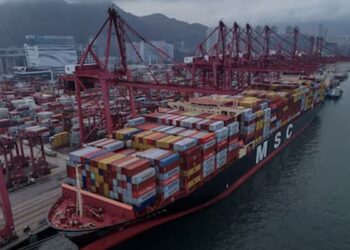On Sunday, President Donald Trump emphasized that no nation is exempt from U.S. tariffs, regardless of recent efforts to temporarily pause some tariffs for 90 days, as reported by AFP.
He also minimized the importance of the temporary exemptions that were granted for selected technology products made in China.
The stock market has experienced fluctuations since Trump announced extensive tariffs on April 2. Although stocks initially dropped significantly, they made a partial recovery following the announcement of a 90-day hold on the most severe tariff rates. During this period, most countries will encounter a 10 percent tariff, while China will respond with its own tariff increases.
The U.S. and China have been involved in a back-and-forth regarding duties, resulting in U.S. tariffs on Chinese goods reaching 145 percent, with China imposing retaliatory tariffs at a level of 125 percent. Trump has continued to argue that unfair trade practices have contributed to trade deficits in the U.S., even as some tariffs impact countries where the U.S. actually has trade surpluses.
“NOBODY is escaping accountability for the unfair trade imbalances and non-monetary tariff barriers that other nations have imposed against us, particularly China, which treats us the worst!” Trump stated on Truth Social.
While the administration provided exemptions on Friday for certain Chinese semiconductors and electronics, citing consumer price concerns, Trump asserted on Sunday that “no tariff ‘exception’” was made. He clarified that those products are still classified under a different category, facing a 20 percent tariff rate.
This reprieve may be short-lived. The electronics that were exempted last week might soon face additional sector-specific tariffs relating to national defense. Trump mentioned that more details would be announced on Monday.
Commerce Secretary Howard Lutnick indicated that the implementation of semiconductor tariffs could occur “in a month or two” and added that pharmaceutical products would also be exempted from reciprocal tariffs.
While Trump remains optimistic about reaching an agreement with China, Trade Representative Jamieson Greer stated on Face the Nation that “we currently do not have any plans” for a meeting between Trump and Xi.
In the meantime, Chinese President Xi Jinping is embarking on a tour of Southeast Asia this week to strengthen ties with key regional manufacturing countries. With U.S. consumer confidence and investor sentiment eroding, the White House insists that its tariff policy is compelling other nations to negotiate before the 90-day delay concludes.





